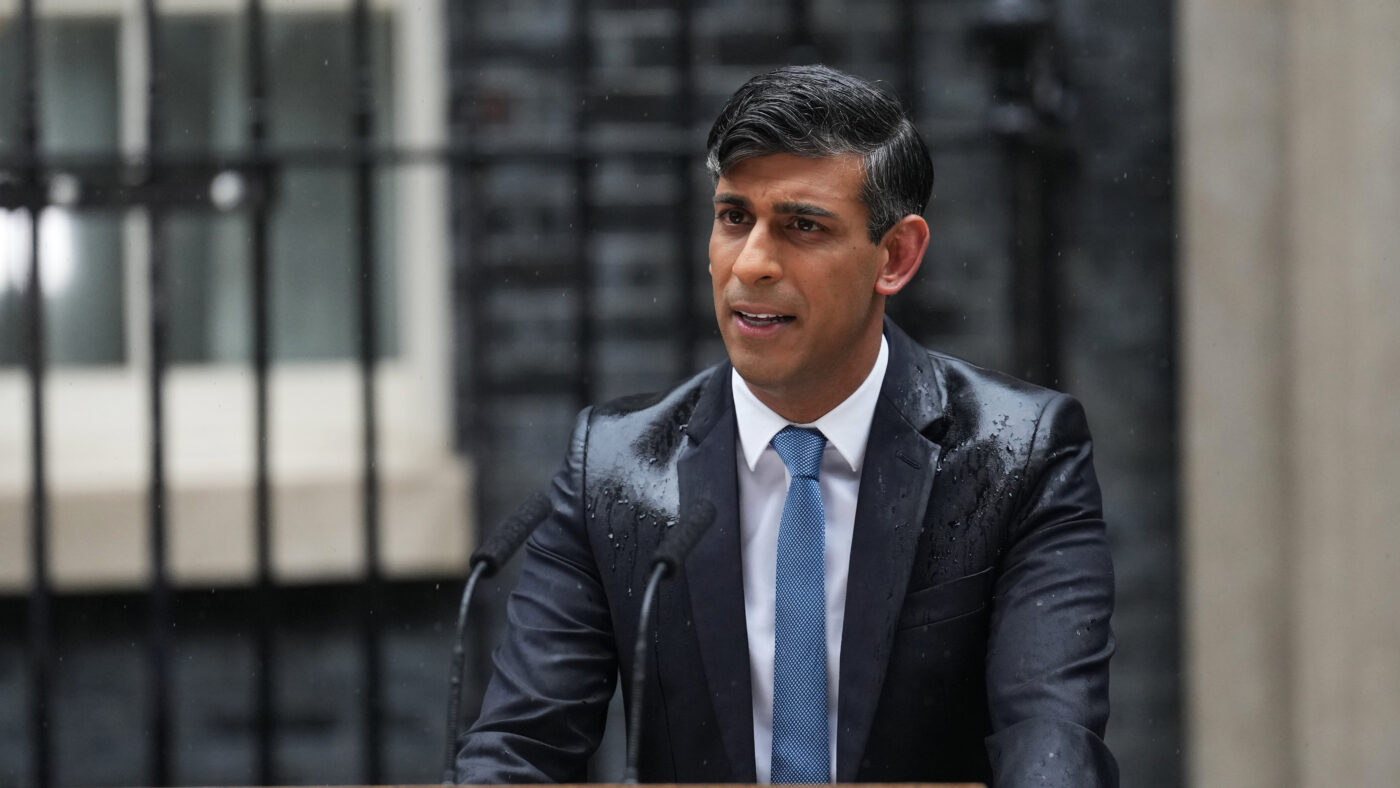In 1994, when Rishi Sunak was 14 years old, Oasis released their smash hit ‘Live Forever’. In it, Liam Gallagher asked the world ‘lately, did you ever feel the pain in the pouring rain?’ Back then, the adolescent Suank probably bobbed his head to the track like most others his age, unaware of the poignance this line would hold in later life.
But here we are. Sunak is no longer a teenager, he is the Prime Minister of the United Kingdom, and on Wednesday, when he announced a general election for July 4, he will no doubt have gained an appreciation for what Gallagher sang about.
Like many others, my colleagues and I huddled around the office television to watch the announcement that had been rumoured throughout the day. Under brooding skies, Sunak took to the podium outside of Number 10 to convince the nation that he remains the man with the plan. So committed was he to this message that in the seven-minute speech, the word ‘plan’ was used ten times.
He opened the announcement by reminding us that in the last five years, ‘our country has fought through the most challenging times since the Second World War’ and detailed the various ways his government has navigated us through global pestilence, European conflict and economic turbulence. The Prime Minister’s central warning was clear – that if we don’t tick his box on the ballot paper on July 4, Britain will be left in the hands of Keir Starmer, a man who will ‘do anything to get power’.
Right off the bat, the optics for Sunak’s re-election campaign have left something to be desired. Obviously, the inclement weather and the troublemaker blaring D:Ream’s ‘Things Can Only Get Better’ outside the Downing Street gates didn’t make for a great start.
The day after, Sunak travelled to the East Midlands and Wales for the first legs of his election tour. In a Derbyshire factory, it transpired that the person who asked him about immigration during a Q&A session was Ross Hills, a Conservative Leicestershire councillor, cleverly disguised in a high-vis vest.
His trip to a brewery in Barry didn’t go much better. While the purpose of Sunak’s visit was to lambast the Welsh Labour government for their ‘war on motorists’ and record on healthcare, Sunak (a football fan himself) also asked attendees whether they were looking forward to ‘all the football’, only to be reminded by one that Wales hadn’t qualified for this year’s European Championship. Then, of course, someone made the bizarre decision to send him to visit the place where they built the Titanic.
But readers need to remember that the temptation to obsess over poor optics and gaffs obscures what really matters in a political contest – the policies on offer. And there are still questions to be answered about both agendas.
Take Labour’s plans for a ‘New Deal for Working People’ and a private school tax raid. Both of these flagship policies carry grave risks. Despite the former having alienated the party’s union paymasters, it is still terrible legislation. By reviving national sectoral bargaining, the measure would take us back to the interventionist labour market of the early 20th century. Moreover, Starmer’s plan to levy a 20% VAT charge on private school fees has already caused a number of parents to withdraw their children from independent schools which, if it continues, threatens to swamp the state sector.
In the same breath, many on the Right question whether Rishi Sunak’s offering will go far enough, particularly when it comes to migration. With immigration having soared in recent years, some are sceptical that the Prime Minister’s Rwanda plan will be the deterrent the Tories hoped for.
These are the factors that ought to decide who enters Downing Street on July 5. While it may be difficult, concerned voters should look beyond headlines about what weather conditions a candidate happens to be speaking in and interrogate each party’s vision for the country. As Sunak outlined in his speech, the challenges facing our nation are extreme, and the stakes are too high to allow this election to become a war of personalities.
Click here to subscribe to our daily briefing – the best pieces from CapX and across the web.
CapX depends on the generosity of its readers. If you value what we do, please consider making a donation.


